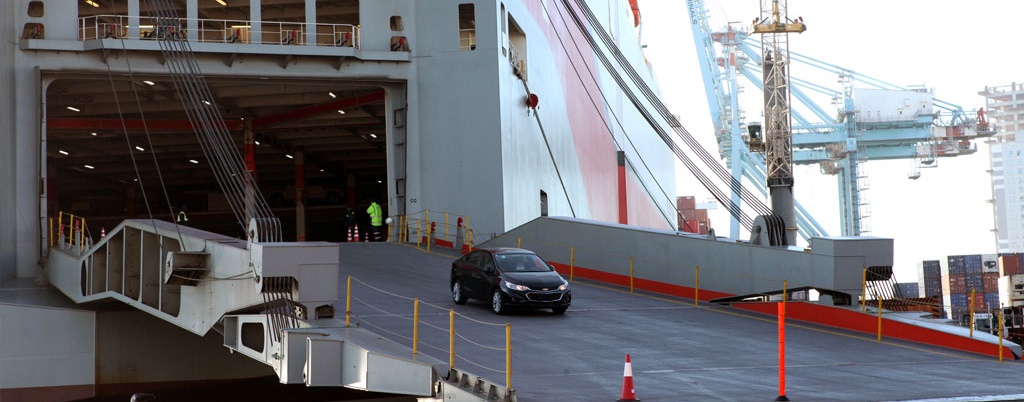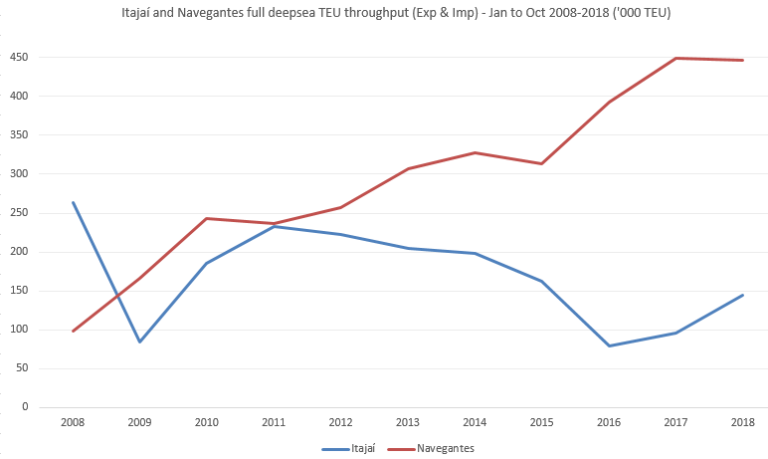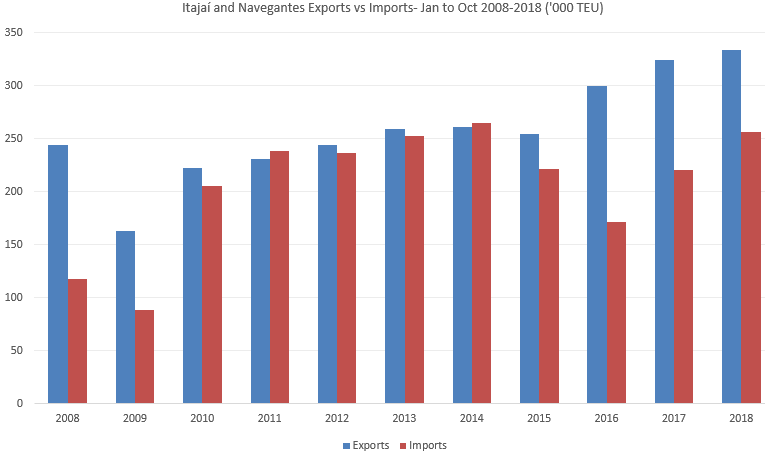
APM Terminals signs a one-year RoRo contract in a bid to diversify
Dec, 07, 2018 Posted by datamarnewsWeek 201850
Itajaí port concessionaire, APM Terminals, predominantly a container terminal, signed a one year contract to receive Ro-Ro vessels to import vehicles. It is believed that the terminal will move approximately 40,000 units in 2019 after having moved close to 13,000 vehicles this year. This diversification is in line with what a growing trend by container terminals to diversify in a bid to compete with the bigger players, such as DP World and Terminal Link.
APM Terminals has seen a roller coaster trip over the last ten years. After being hit by a major flood in November 2008 which rendered three berths completely unusable, and having recovered against all the odds despite fierce competition from its neighbor Portonave and the loss of important services over the years, the terminal has seen a recovery in container volumes over the past two years.
According to DataLiner, APM Itajaí is now seeing better days. This year exports of full, long-haul containers have risen 49.78% to 144,204 TEU in the first ten months of 2018 YoY. According to Itajaí Port Authority, volumes including empties and cabotage during the same period reached 320,225 TEU, up 82.2% YoY.
The graphs below show Itajaí’s recovery over the past two years, as well as the dramatic change in the region’s container terminal activity after the floods and the introduction of Portonave. A further graph shows how exports have dominated the port since 2015 when the most recent recession began and how imports are beginning to recover as the economy gradually bounces back.
Supporting Sources:
New ro-ro and container rebound lifts APM Terminal Itajaí
Ro-ro rebound
Other smaller container terminals struggling to compete with international players, such as DP World (at DP World Santos) and Terminal Link (at Brasil Terminal Portuaria in Santos), have also diversified to survive, venturing into warehousing and much more less-than-containerload cargoes (Rodrimar, Ecoporto Santos, and Libra Terminais) and even handling live cattle for export (Ecoporto Santos), although that has since been curtailed after animal rights protests.
APM Terminals assina contrato de um ano para operação de veículos em Itajaí
-
Grains
Jan, 27, 2021
0
Argentine wheat exports down 52% in December
-
Shipping
Mar, 14, 2023
0
Carbon footprint visibility platform promote sustainable logistics
-
Meat
Apr, 08, 2024
0
Pork exports in March are below March/22 and February/24
-
Ports and Terminals
May, 27, 2022
0
Antaq extends the public hearing on Port of Santos’ STS53 to June 15




